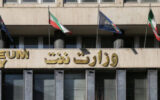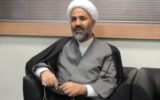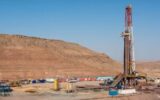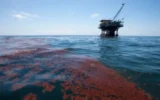
Statistics from the Tanker Trackers Institute show that just 3 weeks after Iran's oil exports hit a record high, we are once again witnessing a new and unprecedented record in our country's oil exports.

The CEO of Gachsaran Oil and Gas Exploitation Company announced the realization of 100 percent of the projected production plan in this company and said: "With a 25 percent share in the country's oil production, this company, as the gateway for Iranian oil exports in the south, plays a strategic role in national energy sustainability."

The manager of industrial equipment and process machinery repairs reported the significant growth in the performance of this management in the first 6 months of the last three years and emphasized: "The realization of repair programs, by leveraging specialized forces and relying on internal capacity, has guaranteed the path to sustainable production and improved efficiency of operational facilities."

The Ministry of Petroleum ranked first among more than three thousand executive agencies in the country in terms of implementing the law on the publication and free access to information.

The head of the Article 90 Commission of the Islamic Consultative Assembly said: "Visiting the National Iranian Oil Company's monitoring center is a good opportunity for us to closely examine the issues and problems in the oil industry and take action to resolve them through the budget bill and other legal tools."

The Director General of Research and Technology of the Ministry of Oil announced the official announcement of the "Roadmap for the Development of Technology of the Ministry of Oil" and said: "This action is a decisive step in completing and implementing a comprehensive system of research, technology, and commercialization of the oil industry."

A number of members of the Islamic Consultative Assembly positively evaluated the performance of the Ministry of Oil in controlling flare gases and stated: "The 14th government has taken effective measures to reduce the waste of this national capital."

The executive of the Azar Oil Field Development Plan said: "With the announcement of the readiness of the Cheshmeh Khosh Gas and Liquefied Gas Plant (NGL 3100) to receive high-pressure gas from early November, the Azar Oil Field Development Plan has taken an important step towards the sustainable and optimal exploitation of associated gases, and the fourth-tier compressors for boosting the pressure of this field have entered the operation circuit."

A follow-up meeting on the implementation of the Memorandum of Understanding of the Iran-Russia Joint Economic Commission was held with the presence of the Deputy Minister of Oil and representatives of executive agencies. The meeting emphasized accelerating the implementation of the approvals, removing obstacles to cooperation, and preparing for the 19th Joint Commission by the end of the year.

Turbopump No. 3 of the Persian Gulf Oil Terminal's crude oil export terminal was successfully repaired with the efforts of the terminal's expert staff.










